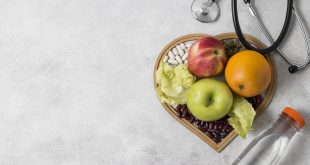Medicinal use
Honey in Pakistan has been used to treat a wide range of diseases, ailments, and injuries.It can be mixed with other remedies and consumed or rubbed on the skin. Practitioners of Ayurvedic medicine have attempted to use honey as a remedy for the following:
- stress
- weakness
- Sleep disturbance
- Eye sight problems
- bad breath
- teething pain in children older than one year
- cough and asthma
- hiccup
- Stomach ulcers
- diarrhea and dysentery
- vomiting
- enuresis and frequent urination
- High blood pressure
- obesity
- jaundice
- hangover relief
- eczema and dermatitis
- burns, cuts and wounds
- arthritis
While not all uses of honey are confirmed to be effective, trying it as a treatment will not worsen conditions or cause harm.Honey is sometimes touted as a cosmetic solution for cracked, dry, pimple or clogged skin
History
Cave paintings show that about 8,000 years ago, humans used honey for the first time, although there was no evidence that humans had and grew bee colonies until 2,400 BC. Honey was a mainstay in the medical practices of many cultures for centuries. More than 4,000 years ago, honey was used in traditional Ayurvedic medicine, where it was thought to be effective in treating indigestion and imbalances in the body. Before its use by the ancient Egyptians, honey was rubbed on the skin to treat wounds and has been found in medicinal substances for more than 5,000 years. The beneficial properties of honey have been explored and studied in modern times, and there is evidence to suggest that some parts of its historical reputation may be true.
Properties
According to the United States Department of Agriculture (USDA) National Nutrient Database, a tablespoon of honey contains 64 calories, 17.3 grams (g) of sugar and 0 g of fiber, fat and protein. Choosing honey over refined and processed sugar can have long-term health benefits. Honey is known to have antioxidant, antimicrobial, and calming effects. It is made up of glucose, fructose and minerals, such as iron, calcium, phosphate, sodium, potassium and magnesium chloride. Below is a typical honey profile, according to BeeSource:
- Fructose: 38.2 percent
- Glucose: 31.3 percent
- Maltose: 7.1 percent
- Sucrose: 1.3 percent
- Water: 17.2 percent
- Higher sugars: 1.5 percent
- Ash: 0.2 percent
- Other: 3.2 percent
The slightly acidic pH level of honey is what helps prevent the growth of bacteria, while its antioxidant elements scavenge free radicals that are related to disease. The physical properties of honey vary according to the specific flora used in its production, as well as its water content.
Diet
Shaking honey in tea or coffee is a good way for a person to include it in their diet. Experimentation is key when replacing sugar with honey. Baking with honey can cause excess browning and moisture. As a general rule, use ¾ cup of honey for every cup of sugar, reduce the liquid in the recipe by 2 tablespoons, and lower the oven temperature by 25º Fahrenheit. Here are some quick tips for including honey in your diet: Use honey to sweeten your dressings or marinades.
- Add honey to coffee or tea.
- Sprinkle honey on toast or pancakes.
- Mix honey with yogurt, cereal, or oatmeal for a more natural sweetener.
- Spread raw honey on whole wheat toast and top with peanut butter.
- Alternatively, try these delicious and healthy recipes developed by registered dietitians:
- Mango and basil honey sorbet
- Dijon honey vinaigrette with arugula, pear and walnut salad
- Grilled Fruit Skewers
Risks
A person’s general eating pattern is more important in preventing disease and achieving good health. Eating a variety diet is better than concentrating on individual foods as the key to good health. Honey is still a form of sugar, so intake should be moderate. The American Heart Association (AHA) recommends that women get no more than 100 calories per day from added sugars and men no more than 150 calories per day. This equates to just over two tablespoons for women and three tablespoons for men.
It is recommended that babies under one year of age do not consume honey. Honey can contain botulinum endospores that cause infant botulism in very young children, a rare but serious type of food poisoning that can lead to paralysis. Even pasteurized honey has the potential to contain these spores.
Read this : Marhaba Price in Pakistan
 Bloggers Trend Keeping You Up To Date
Bloggers Trend Keeping You Up To Date


